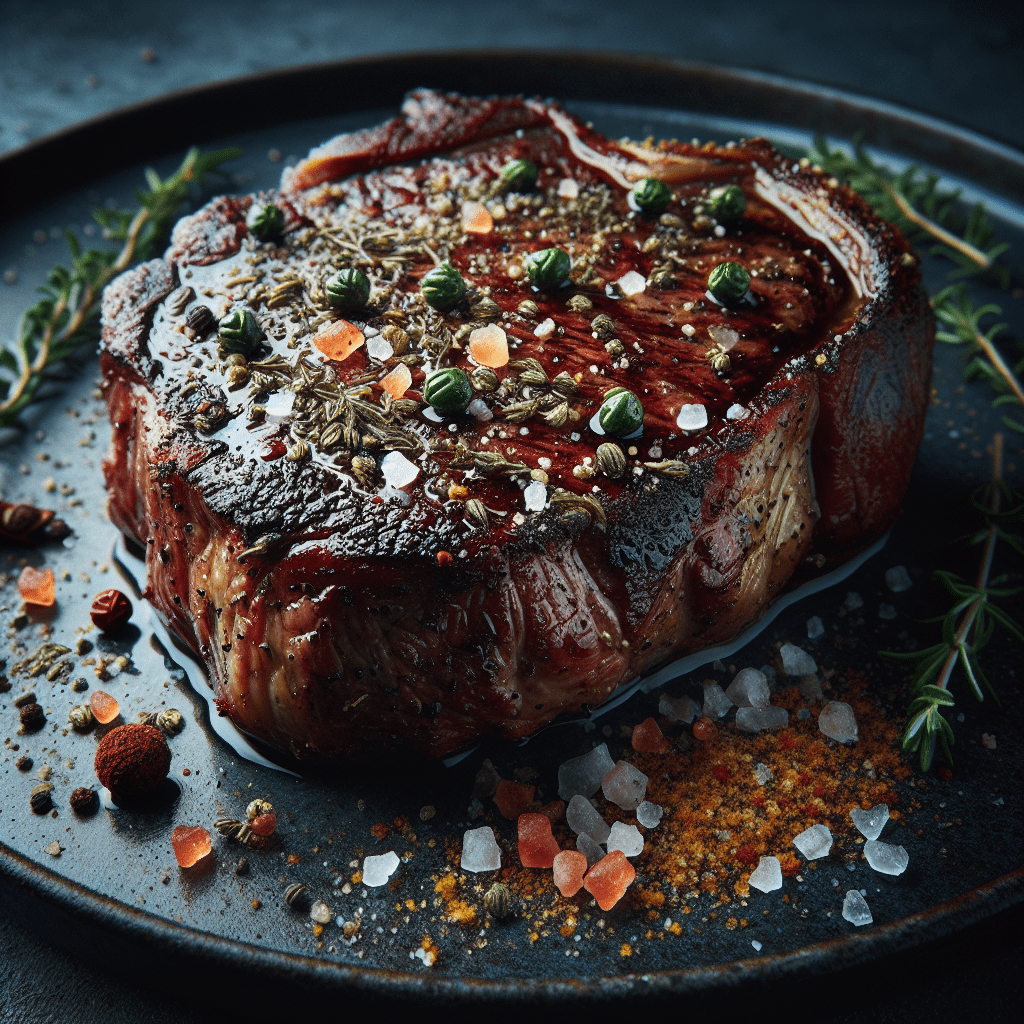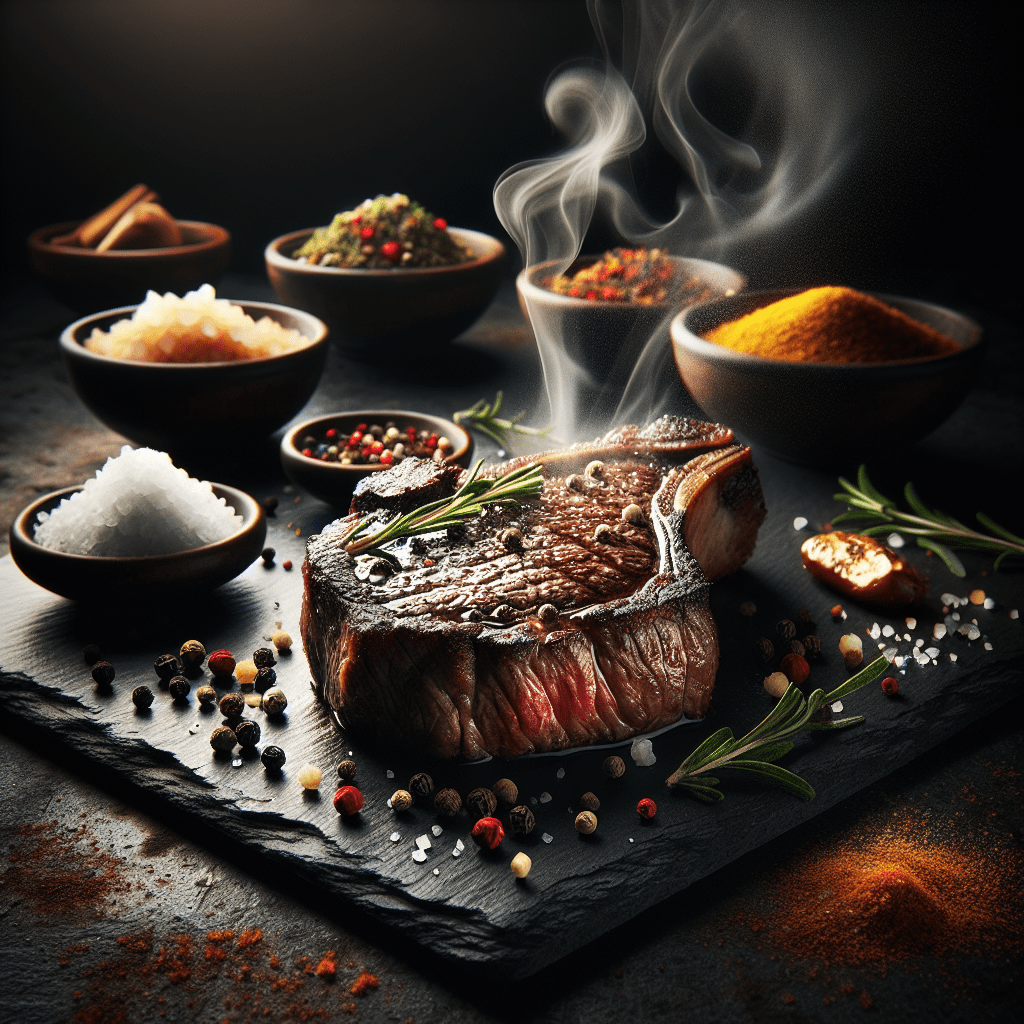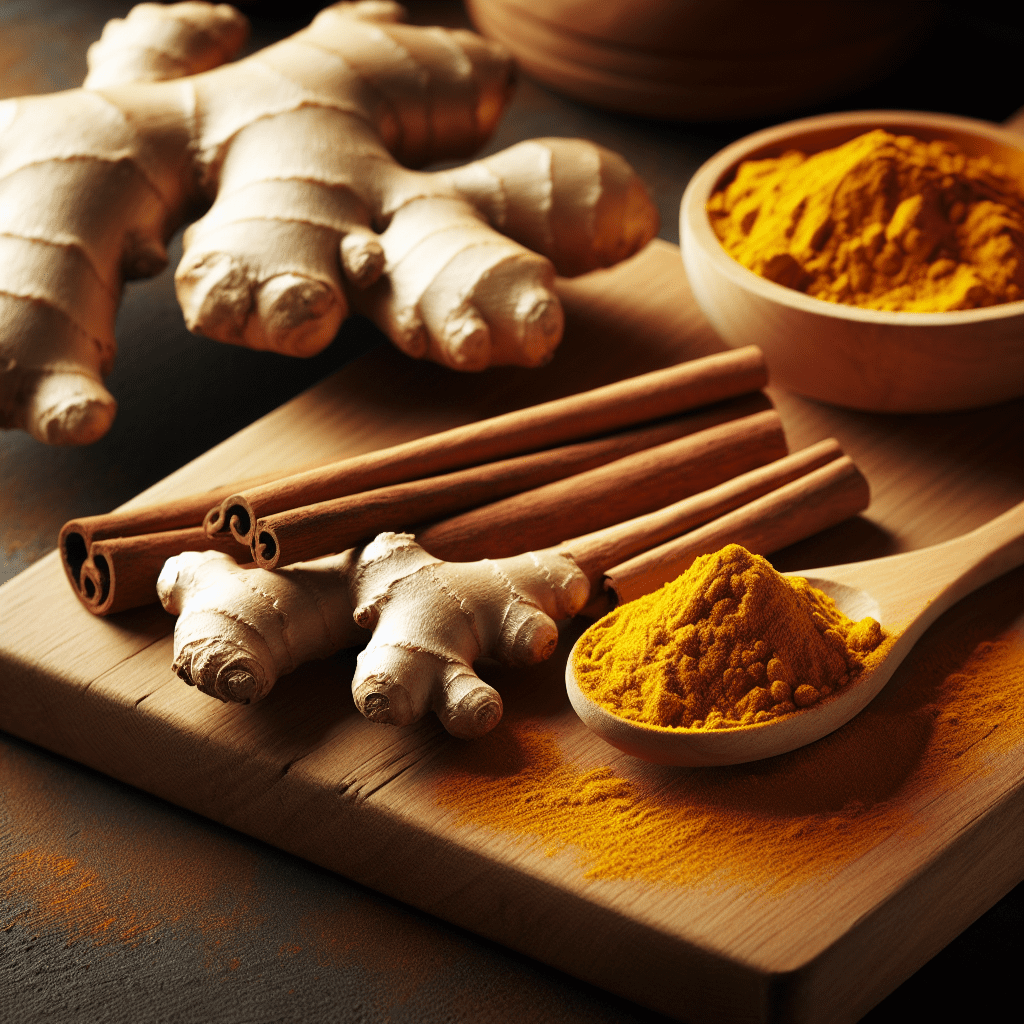Ah, the carnivore diet – that rebellious eating plan where vegetables are considered intruders and meat reigns supreme. If you’ve jumped on this protein-packed bandwagon, you’ve probably heard the jokes: “So, what’s for dinner? Steak. And for breakfast? Steak. Lunch? You guessed it – more steak.” While the simplicity has its charm, even the most devoted meat enthusiasts occasionally crave something beyond the taste of plain animal protein.
But here’s the million-dollar question that keeps carnivore dieters up at night (besides all that protein energy): What seasonings can you use on carnivore diet without breaking the sacred rules? After all, many conventional seasonings contain plant derivatives, sugars, and other ingredients that might make carnivore purists clutch their meat cleavers in horror.
Fear not, my meat-loving friends! Eastern medicine, with its 2,000-year-old wisdom, offers some surprising allies in your quest for flavorful feasting without compromising your carnivorous commitments. These aren’t just random flavor enhancers – they’re medicinal powerhouses that have been used since ancient times to support health while making food taste downright delicious.
Let’s dive fork-first into these Eastern medicine-backed seasonings that will transform your carnivore diet from bland to grand!
The Fantastic Five: Eastern Seasonings to Revolutionize Your Meat
1. Turmeric: The Golden Child of Seasonings
Turmeric isn’t just that yellow powder that stains everything it touches (including your favorite white shirt – we’ve all been there). This golden wonder has been a cornerstone of Eastern medicine for centuries, primarily due to its active compound, curcumin.
In traditional Eastern healing practices, turmeric is revered for its ability to reduce inflammation, support cardiovascular health, and improve circulation. For carnivore dieters who worry about the inflammatory effects of an all-meat diet, this golden spice might be your new best friend.
How to use it without breaking carnivore rules? Try rubbing a small amount of turmeric powder mixed with salt on your steak before cooking. The earthy, slightly bitter flavor adds complexity to rich meats without overpowering them. Plus, that yellow-orange color gives your meat an Instagram-worthy glow that says, “Yes, I’m eating only meat, and yes, it’s fabulous.”
2. Ginger: The Fiery Root That Soothes
Trying to pronounce “fresh ginger root” five times fast might be challenging, but incorporating this knobby miracle into your carnivore diet is surprisingly easy. In Eastern medicine, ginger is considered a warming spice that stimulates digestion – something particularly useful when you’re processing all that protein.
Ginger contains powerful compounds like gingerols and shogaols that help reduce inflammation and support digestive health. For carnivore dieters who might experience digestive adjustments when transitioning to an all-meat diet, ginger can be a gentle yet effective ally.
Grate a small amount of fresh ginger over hot meat just before serving, or steep slices in hot water for a warming tea that complements your meaty meals. I once tried explaining to my local butcher that I needed ginger specifically for my carnivore diet – his confused expression was priceless. “But… it’s a plant?” Yes, my friend, it’s the exception that proves the rule!
3. Garlic: The Stinky Superhero
Garlic might make your breath questionable, but its health benefits are undeniable. This pungent bulb has been used in Eastern medicine for everything from supporting immune function to improving heart health. It contains allicin, a compound with impressive antimicrobial properties.
For carnivore dieters concerned about maintaining immune strength without plant foods, garlic offers concentrated immune support in a low-carb package. While technically a plant, many carnivore adherents consider garlic more of a medicinal seasoning than a vegetable – a loophole we’ll happily exploit for the sake of flavor!
Crush a clove and rub it on your steak before cooking, or infuse melted butter with garlic for a simple yet transformative sauce. Just remember to keep breath mints handy if you have a business meeting or a date later. Nothing says “I’m on a carnivore diet” quite like garlic-infused conversation.
4. Reishi Mushroom: The Fungi Phenomenon
Attempting to pronounce “reishi” (ray-she) at your local health food store might earn you some confused looks, but don’t let that stop you from exploring this remarkable fungus. While technically not an animal product, many carnivore dieters make exceptions for fungi due to their unique biological classification.
In Eastern medicine, reishi mushrooms are considered adaptogenic, helping the body resist various stressors. They’re rich in beta-glucans and triterpenes that support immune function and help regulate inflammation – valuable benefits for those consuming high amounts of animal protein.
Dried reishi can be ground into a powder and sprinkled sparingly on cooked meats, or steeped in hot water for a bitter yet medicinal tea. The earthy, slightly bitter flavor complements rich meats surprisingly well. Just be prepared for questions like, “Isn’t that a plant?” to which you can respond, “Actually, fungi are more closely related to animals than plants. Science!” Then walk away like the carnivore diet intellectual you are.
5. Ginseng: The Root of All Vitality
Ginseng is the rock star of Eastern herbal medicine, and trying to pronounce it correctly might give your tongue a workout (“JIN-seng” or “gin-SENG”? The debate rages on). This root has been used for thousands of years to boost energy, enhance vitality, and support overall wellness.
For carnivore dieters pushing through the adaptation phase, ginseng’s energy-supporting properties can be particularly welcome. It contains ginsenosides that help modulate the body’s stress response and support adrenal function – helpful when your body is adjusting to a new fuel source.
A small amount of ginseng powder can be mixed with salt for a pre-cooking meat rub, or steeped in hot water for a revitalizing tea between meals. The slightly sweet, earthy flavor adds subtle complexity to meats without overwhelming their natural richness.
The Flavor Five: More Eastern Medicine Seasonings to Elevate Your Meat Game
6. Peppermint: The Cool Customer
Peppermint might seem like an odd pairing with meat, but this cooling herb has been used in Eastern medicine for centuries to aid digestion and soothe the gastrointestinal tract. The active compound menthol provides that characteristic cooling sensation that can balance the heaviness of an all-meat diet.
For carnivore dieters experiencing digestive adjustments, peppermint offers gentle, natural support. It’s particularly helpful after consuming fattier cuts of meat, which can sometimes cause digestive discomfort during adaptation.
Try steeping dried peppermint leaves in hot water for a refreshing post-meal tea, or finely chop fresh leaves as a garnish for cold meat dishes. The unexpected contrast between cooling mint and savory meat creates a culinary experience that’s surprisingly sophisticated for something so simple. It’s like having a breath mint and dinner all in one – efficiency at its finest!
7. Goji Berries: The Red Jewels
“Wait, berries on a carnivore diet? That’s madness!” I hear you cry. But hear me out – goji berries are used medicinally in Eastern practice, and many carnivore dieters make small exceptions for therapeutic foods used in minimal amounts.
In traditional Eastern medicine, goji berries are believed to nourish the liver and kidneys, support vision, and enhance vitality. They’re rich in antioxidants and amino acids that support overall wellness – beneficial properties that might justify their occasional inclusion for some carnivore dieters.
Use them sparingly – try steeping a few dried berries in hot water to make a tea that complements your meat meals, or rehydrate them and mash into a paste with salt for an unusual but delicious meat rub. Just don’t tell the carnivore diet police – what happens in your kitchen stays in your kitchen!
8. Cinnamon: The Sweet Heat
Cinnamon is the warm hug of the spice world, and its sweet warmth can transform even the plainest meat dishes. In Eastern medicine, cinnamon is considered a warming spice that supports circulation, stabilizes blood sugar, and aids digestion.
For carnivore dieters navigating the sometimes challenging waters of an all-animal-product diet, cinnamon offers gentle digestive support while adding complexity to meat flavors. Its natural sweetness can help satisfy cravings for sweet foods without adding any actual sugar.
Try adding a pinch of cinnamon to bone broth for a surprisingly complex flavor, or include it in spice rubs for roasted meats. The subtle sweetness pairs particularly well with fattier cuts, creating a flavor reminiscent of the sweet-savory balance we often crave. Who knew cinnamon could be so versatile? It’s not just for desserts anymore!
9. Chili Pepper: The Fiery Friend
Chili peppers contain capsaicin, which is like the spice equivalent of a morning jog – it gets everything moving and raises your temperature. In Eastern medicine, chilies are valued for their ability to stimulate circulation, clear congestion, and boost metabolism.
For carnivore dieters looking to maintain metabolic health, the thermogenic effect of capsaicin can be particularly beneficial. Plus, that spicy kick adds serious dimension to meat dishes that might otherwise become monotonous.
Use dried chili flakes or powder as a finishing spice on cooked meats, or infuse animal fats with fresh chilies for a spicy drizzle. Just remember that a little goes a long way – unless you enjoy the peculiar experience of having your mouth feel like it’s simultaneously on fire and eating a steak. Which, come to think of it, could be an interesting sensory experiment!
10. Black Pepper: The Humble King
Black pepper might seem basic compared to our more exotic entries, but this humble spice has been treasured in Eastern medicine for thousands of years. It contains piperine, which enhances the absorption of other nutrients and supports digestion – particularly valuable when your diet consists primarily of protein and fat.
In traditional Eastern practice, black pepper is considered warming and stimulating, helping to move energy and support metabolic functions. For carnivore dieters, these properties can help maximize the nutritional benefits of the animal foods they consume.
Freshly ground black pepper on a perfectly cooked steak is one of life’s simple pleasures. Try toasting whole peppercorns before grinding for enhanced flavor, or create a pepper crust on meat before cooking for a textural contrast that takes your carnivore meals to new heights.
Embracing Flavorful Wellness: Eastern Wisdom Meets Modern Carnivore
As we’ve explored these ten Eastern medicine-backed seasonings, a beautiful harmony emerges between the ancestral wisdom of traditional healing and the modern carnivore approach. While you might not transform into the next celebrity chef overnight, these flavor boosters offer something far more valuable: a path to becoming the healthiest version of yourself while actually enjoying your food.
The philosophy behind Eastern medicine aligns surprisingly well with many carnivore diet principles – both emphasize listening to your body, understanding how foods affect your individual constitution, and seeking balance rather than extremes. By incorporating these therapeutic seasonings, you’re not just breaking the monotony of meat-only meals; you’re embracing a holistic approach to wellness that honors both tradition and innovation.
At HerbalsZen, we believe that ancient wisdom and modern knowledge aren’t opposing forces but complementary paths to optimal health. Just as our EASTCHI AI integrates traditional Eastern medicine with cutting-edge technology, your carnivore journey can benefit from this same balanced approach – honoring the core principles while allowing thoughtful adaptations that enhance your experience.
So go ahead – experiment with these seasonings and discover which ones resonate with your body and palate. Your taste buds will thank you, your health may improve, and you’ll have fascinating answers ready the next time someone asks, “So… you just eat plain meat all day?”
The intersection of Eastern medicine and carnivore diet isn’t just about what seasonings can you use on carnivore diet – it’s about creating a personalized approach to nutrition that honors both tradition and your body’s unique needs. And if that happens to make your steak taste amazing too? Well, that’s just the bone marrow on top!



